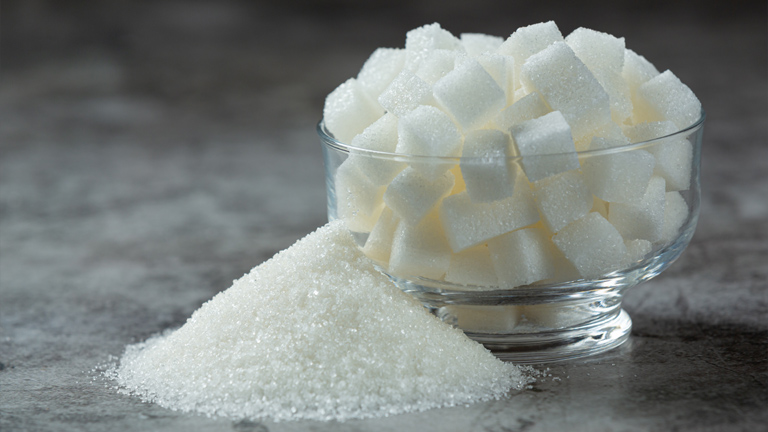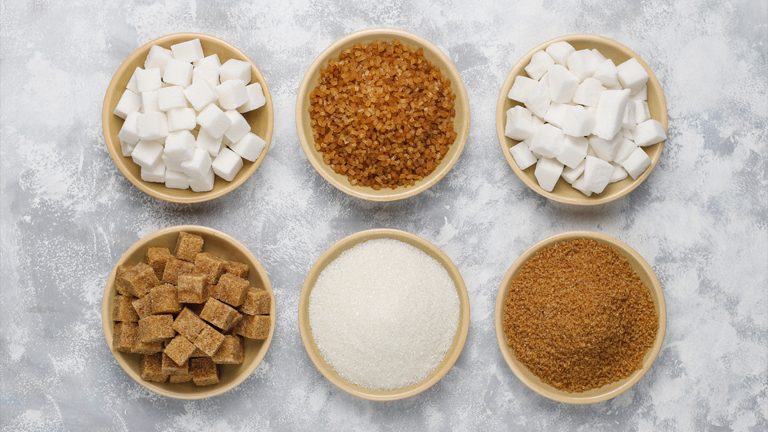In today’s health-conscious world, many people are looking for ways to reduce their sugar intake without sacrificing sweetness. Whether you’re managing diabetes, following a keto diet, or simply aiming for a healthier lifestyle, sugar substitutes offer a fantastic solution. This guide explores the best natural sweeteners, low-calorie sugar alternatives, and artificial sweeteners, helping you make an informed choice for your dietary needs.
Must Check : Type 2 Diabetes
What Are Sugar Substitutes?
Sugar substitutes are substances used to sweeten food and beverages while providing fewer calories than regular sugar (sucrose). They come in various forms, including:
- Natural sweeteners (stevia, monk fruit, honey)
- Artificial sweeteners (aspartame, sucralose, Splenda)
- Sugar alcohols (xylitol, erythritol)
These alternatives are popular among diabetics, weight-watchers, and those following low-carb diets like keto.
Natural vs. Artificial Sweeteners: Key Differences
Understanding the difference between natural and artificial sweeteners is crucial for making healthier choices.
Natural Sweeteners
- Derived from plants or natural sources
- Examples: Stevia, monk fruit, honey, maple syrup, coconut sugar
- Often have minimal processing
- May contain trace nutrients (e.g., antioxidants in honey)
Artificial Sweeteners
- Chemically synthesized
- Examples: Aspartame, Splenda (sucralose), Saccharin
- Zero or low-calorie
- Often sweeter than sugar (e.g., aspartame is 200x sweeter)
While natural sweeteners are generally considered safer, some artificial sweeteners have been approved by health authorities but remain controversial due to potential side effects.
Health Benefits of Sugar Alternatives
Replacing sugar with healthier alternatives offers several benefits:
- Lower calorie intake – Helps with weight loss
- Better blood sugar control – Ideal for diabetics
- Improved dental health – Xylitol reduces cavities
- Keto-friendly – Erythritol and monk fruit have a low glycemic index
- Reduced inflammation – Unlike refined sugar
Top 5 Natural Sugar Substitutes
1. Stevia Sugar Substitutes
- Extracted from the stevia plant
- Zero calories, 200x sweeter than sugar
- Keto and diabetic-friendly
- Best for: Coffee, tea, smoothies
2. Monk Fruit Sweetener Sugar Substitutes
- Made from monk fruit extract
- Zero glycemic impact
- Contains antioxidants
- Best for: Baking, beverages
3. Erythritol Sugar Substitutes
- A sugar alcohol with almost no calories
- Doesn’t spike blood sugar
- Less digestive issues than other sugar alcohols
- Best for: Baking, desserts
4. Xylitol Sugar Substitutes
- Sugar alcohol with 40% fewer calories than sugar
- Promotes dental health (reduces cavities)
- Best for: Chewing gum, oral care products
5. Coconut Sugar Sugar Substitutes
- Made from coconut palm sap
- Contains minerals like potassium and iron
- Lower glycemic index than white sugar
- Best for: Baking, oatmeal, coffee
Artificial Sweeteners: Safety and Risks
While artificial sweeteners like aspartame, sucralose (Splenda), and saccharin are FDA-approved, some studies suggest potential risks:
- Aspartame safety concerns (linked to headaches in sensitive individuals)
- Splenda (sucralose) may alter gut bacteria
- Saccharin was once linked to cancer (though later debunked)
Moderation is key—opt for natural sweeteners when possible.
Best Sugar Substitutes for Baking
Not all sugar alternatives work well in baking. Here are the best options:
- Erythritol – Mimics sugar’s texture, great for cookies
- Monk fruit + Erythritol blends – Best for cakes
- Stevia (liquid or powdered) – Use in small amounts
- Xylitol – Works well but toxic to dogs
Avoid aspartame in baking—it breaks down under heat.
Sugar Alternatives for Diabetics
People with diabetes should choose low-glycemic sweeteners:
- Stevia
- Monk fruit
- Erythritol
- Xylitol (in moderation)
Avoid high-GI sweeteners like honey and agave in large amounts.
Weight Loss and Low-Calorie Sweeteners
If you’re cutting calories for weight loss, consider:
- Stevia (zero calories)
- Sucralose (Splenda) (low-calorie)
- Erythritol (almost no calories)
However, some studies suggest artificial sweeteners may increase sugar cravings, so natural options may be better long-term.
How to Choose the Right Sugar Substitute
Consider these factors:
- Purpose (baking, beverages, etc.)
- Health goals (weight loss, diabetes management)
- Taste preference (some find stevia bitter)
- Digestive tolerance (sugar alcohols can cause bloating)
FAQs About Sugar Substitutes
1. Which is the healthiest sugar substitute?
Stevia and monk fruit are among the healthiest due to their natural origins and zero-calorie content.
2. Are artificial sweeteners bad for you?
In moderation, most are safe, but long-term effects are still debated.
3. Can sugar substitutes cause weight gain?
Some studies suggest they may increase cravings, but they don’t directly cause weight gain.
4. What’s the best sugar substitute for coffee?
Stevia, erythritol, or monk fruit blend well without altering taste.
5. Is honey better than sugar?
Yes—it has antioxidants and a lower GI, but still high in calories.
Conclusion
Choosing the right sugar substitute depends on your health needs and taste preferences. Natural sweeteners like stevia, monk fruit, and erythritol are excellent for most people, while artificial sweeteners should be used in moderation. Whether you’re baking, sweetening coffee, or managing diabetes, there’s a perfect sugar alternative for you.
By making smart swaps, you can enjoy a sweet life without the negative effects of refined sugar!
Final Tips:
- Experiment with different sweeteners to find your favorite.
- Read labels—some blends contain hidden sugars.
- Consult a dietitian if you have specific health concerns.
Would you like recommendations for specific recipes using these sugar substitutes? Let us know in the comments!


